Kinsale,
Co Cork
When talking to Martin last, he was close to finishing up his harvest. The last crop he harvested was his spring oats. He was very happy with how they yielded, considering the crop was sown late and came under pressure for moisture.
Averaging 3t/ac at 17% moisture, specific weights came in at 55 KPH. All of his spring oats passed for milling with Flahavan’s.
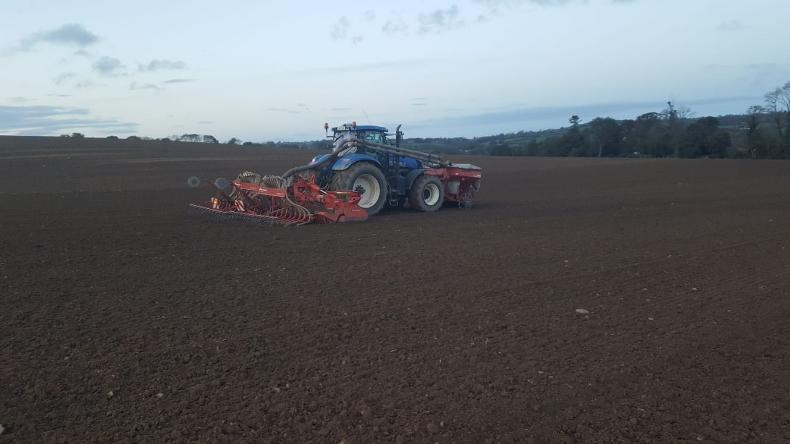
Martin started sowing Graham winter wheat this week.
Martin says they have been very lucky with baling straw this year and were able to bale all straw within four days of being harvested in most cases. Straw yields are back by 25% on average, however. All of Martin’s straw crop is accounted for.
Sowing
Martin started ploughing for winter sowing this week. He runs three Kverneland reversible ploughs – a seven-furrow, five-furrow and four-furrow. Currently, ground conditions are very good.
He started sowing Graham winter wheat on a farm in Kilkenny on Tuesday and hopes to start winter barley by 8 October. Martin explains that the land in Kilkenny must be sown early, as once it gets wet in the autumn, there won’t be a second chance.
He is drilling the crop at 175kg/ha with his six metre one-pass drill. He hopes to have finished drilling this farm, as well as rolling and applying a pre-emerge herbicide by the weekend.
Winter barley
The focus will then turn to winter barley. Martin is aiming to sow two-row, six-row and hybrid varieties this year. He is also trying a small area of the new six-row BYDV-tolerant Joyou variety this year. BYDV pressure in his area can be severe.
His beet crops are looking very well
The crops will also be rolled and will receive a pre-emerge herbicide shortly after sowing. He then plans to move onto winter oats and is planning to sow Husky.
His beet crops are looking very well, explains Martin. They enjoyed a favourable growing season and have good potential.
They received their final fungicide of Opera (1.5l/ha), as well as Boron (1.5l/ha), at the end of August. He aims to start lifting with his twin-row Armer Salmon by mid-October.
Tuam,
Co Galway
Ground conditions in Tuam have been very good over the past few weeks. While the weather is due to break this week with a yellow rain warning in place for Galway, Gerry doesn’t think there will be a significant amount of rainfall.
He started ploughing for autumn drilling last week. Gerry generally ploughs ahead of himself and allows the ground to dry for a few days before drilling. “We wouldn’t normally get it dry enough here to drill straight after the plough, the ground is somewhat heavy,” he explains.
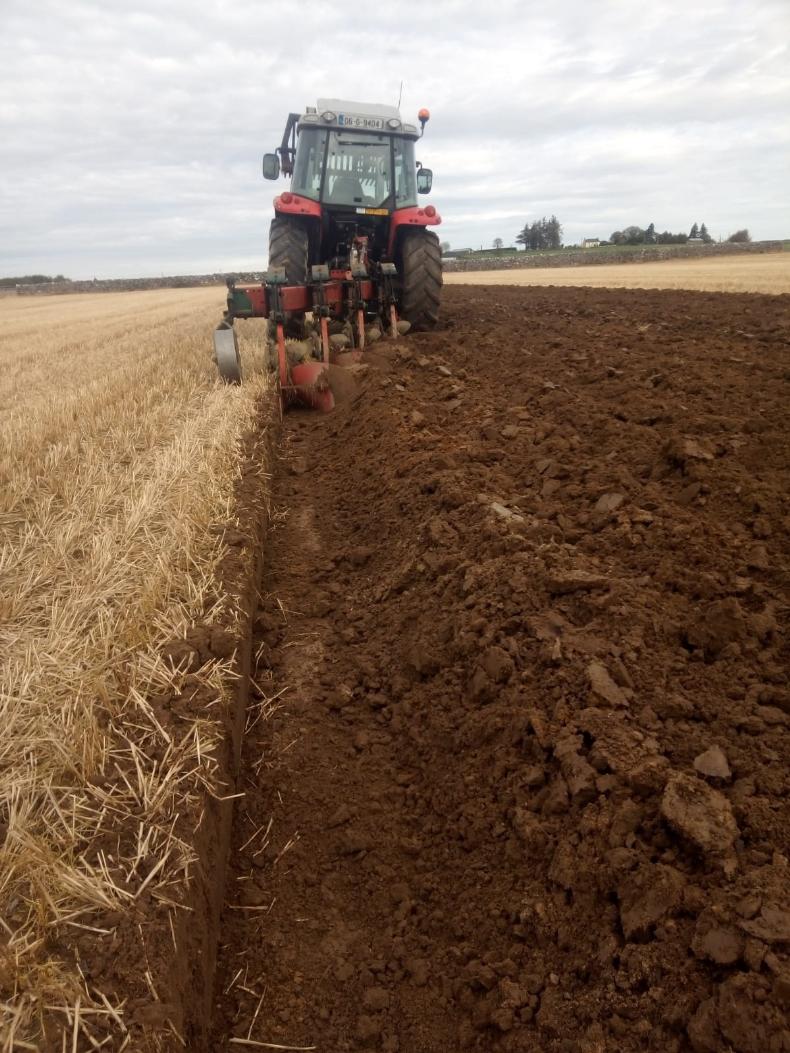
Gerry ploughs ahead of the drill, leaving the ground to dry for a few days.
Gerry ploughs using a conventional four-furrow Kevernland plough on no.8 boards. He purchased this plough around 25 years ago and it continues to serve him well.
Using his Fiona box drill mounted on a Rabe power harrow, he drills directly into ploughed ground. He doesn’t cultivate the ground in autumn before sowing, as he feels it would be too risky. “You wouldn’t get a chance to dry the ground out twice,” Gerry remarked.
This year, he is growing Cassia winter barley. He finds that the variety consistently performs well for him. He grew Infinity in the past, but it was out performed by Cassia. Gerry doesn’t grow any hybrid varieties, as he feels they won’t perform well in his area.
He sowed the crop over the weekend at 208kg/ha. The field was rolled afterwards and Gerry is considering his pre-emerge options.
All of Gerry’s straw is sold and gone. He commented that straw demand was poor at the start of the season
He is currently ploughing ground for winter oats and plans to sow the variety Husky by the weekend. The crop will be sown at between 188-203kg/ha. Husky continues to be a strong performer on Gerry’s farm. He intends to roll the field after sowing, to prevent issues with stones next year.
All of Gerry’s straw is sold and gone. He commented that straw demand was poor at the start of the season, even from regular customers. However, as the season progressed demand increased, as customers realised supply would be tight. Most tillage farmers in his area are now out of straw.
Stabannon,
Co Louth
When talking to Gareth this week, he was about to harvest his last 30ac of spring oilseed rape. He explains that the harvest has been rumbling on in Louth, where many growers have yet to finish spring beans. Over 30mm of rain fell in one day in the region last week, which delayed progress. Ground conditions are sticky in places as a result.
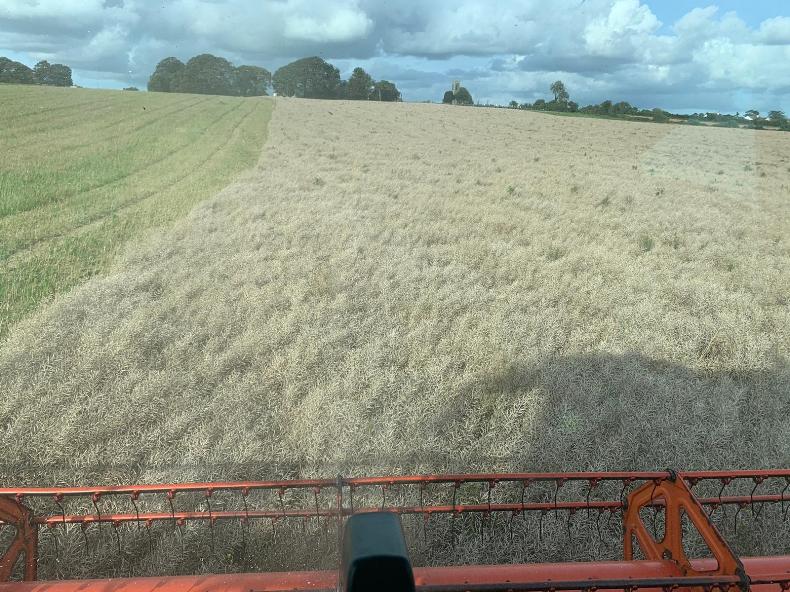
Gareth harvested his spring oilseed rape this week. The crop yielded 1.35t/ac at 12% moisture. in total, the crop cost €300/ac to grow including machinery costs.
He finished harvesting his Wizard beans this week, however he wasn’t happy with their performance. The crop yielded 1.5t/ac and Gareth thinks that drought had a significant impact on flower development. He finished his Isabel spring oats shortly before this.
The crop averaged 2.2t/ac at between 19-22% moisture. The straw produced around two 8x4x4 square bales/ac. The crop was sown on marginal land, so he isn’t surprised with its performance.
His spring barley crops averaged 2.6t/ac and six 4x4 round bales/ac, which he was happy with.
Across all of his 2020 crops, the only fungicide he used was Folicur to control yellow rust in Bennington winter wheat
The key thing to remember here is that Gareth kept his inputs to a minimum, applying no chemical nitrogen, insecticides or fungicides. Instead, he used starter P and K and foliar feeds throughout the season.
Across all of his 2020 crops, the only fungicide he used was Folicur to control yellow rust in Bennington winter wheat. However, he did use multiple foliar feeds, which also come at a cost, explains Gareth.
Winter crops
He doesn’t have any winter crops sown yet, but is planning to start sowing winter wheat soon. All of his ground is in good shape after the harvest, so he is comfortable with direct drilling all crops this year.
Gareth doesn’t use the stale seedbed technique to germinate weed seeds, as he experienced mediocre brome control with this method in the past. In some cases, he will be drilling directly into established covers.
Gareth will add Graham and Theodore into a four–way winter wheat seed mix, which was carried over from 2019, creating a six-way mix. He intends to sow 50% of his winter area in wheat, 20% in winter beans, 20% in winter barley and 10% in winter oats.
Kinsale,
Co Cork
When talking to Martin last, he was close to finishing up his harvest. The last crop he harvested was his spring oats. He was very happy with how they yielded, considering the crop was sown late and came under pressure for moisture.
Averaging 3t/ac at 17% moisture, specific weights came in at 55 KPH. All of his spring oats passed for milling with Flahavan’s.

Martin started sowing Graham winter wheat this week.
Martin says they have been very lucky with baling straw this year and were able to bale all straw within four days of being harvested in most cases. Straw yields are back by 25% on average, however. All of Martin’s straw crop is accounted for.
Sowing
Martin started ploughing for winter sowing this week. He runs three Kverneland reversible ploughs – a seven-furrow, five-furrow and four-furrow. Currently, ground conditions are very good.
He started sowing Graham winter wheat on a farm in Kilkenny on Tuesday and hopes to start winter barley by 8 October. Martin explains that the land in Kilkenny must be sown early, as once it gets wet in the autumn, there won’t be a second chance.
He is drilling the crop at 175kg/ha with his six metre one-pass drill. He hopes to have finished drilling this farm, as well as rolling and applying a pre-emerge herbicide by the weekend.
Winter barley
The focus will then turn to winter barley. Martin is aiming to sow two-row, six-row and hybrid varieties this year. He is also trying a small area of the new six-row BYDV-tolerant Joyou variety this year. BYDV pressure in his area can be severe.
His beet crops are looking very well
The crops will also be rolled and will receive a pre-emerge herbicide shortly after sowing. He then plans to move onto winter oats and is planning to sow Husky.
His beet crops are looking very well, explains Martin. They enjoyed a favourable growing season and have good potential.
They received their final fungicide of Opera (1.5l/ha), as well as Boron (1.5l/ha), at the end of August. He aims to start lifting with his twin-row Armer Salmon by mid-October.
Tuam,
Co Galway
Ground conditions in Tuam have been very good over the past few weeks. While the weather is due to break this week with a yellow rain warning in place for Galway, Gerry doesn’t think there will be a significant amount of rainfall.
He started ploughing for autumn drilling last week. Gerry generally ploughs ahead of himself and allows the ground to dry for a few days before drilling. “We wouldn’t normally get it dry enough here to drill straight after the plough, the ground is somewhat heavy,” he explains.

Gerry ploughs ahead of the drill, leaving the ground to dry for a few days.
Gerry ploughs using a conventional four-furrow Kevernland plough on no.8 boards. He purchased this plough around 25 years ago and it continues to serve him well.
Using his Fiona box drill mounted on a Rabe power harrow, he drills directly into ploughed ground. He doesn’t cultivate the ground in autumn before sowing, as he feels it would be too risky. “You wouldn’t get a chance to dry the ground out twice,” Gerry remarked.
This year, he is growing Cassia winter barley. He finds that the variety consistently performs well for him. He grew Infinity in the past, but it was out performed by Cassia. Gerry doesn’t grow any hybrid varieties, as he feels they won’t perform well in his area.
He sowed the crop over the weekend at 208kg/ha. The field was rolled afterwards and Gerry is considering his pre-emerge options.
All of Gerry’s straw is sold and gone. He commented that straw demand was poor at the start of the season
He is currently ploughing ground for winter oats and plans to sow the variety Husky by the weekend. The crop will be sown at between 188-203kg/ha. Husky continues to be a strong performer on Gerry’s farm. He intends to roll the field after sowing, to prevent issues with stones next year.
All of Gerry’s straw is sold and gone. He commented that straw demand was poor at the start of the season, even from regular customers. However, as the season progressed demand increased, as customers realised supply would be tight. Most tillage farmers in his area are now out of straw.
Stabannon,
Co Louth
When talking to Gareth this week, he was about to harvest his last 30ac of spring oilseed rape. He explains that the harvest has been rumbling on in Louth, where many growers have yet to finish spring beans. Over 30mm of rain fell in one day in the region last week, which delayed progress. Ground conditions are sticky in places as a result.

Gareth harvested his spring oilseed rape this week. The crop yielded 1.35t/ac at 12% moisture. in total, the crop cost €300/ac to grow including machinery costs.
He finished harvesting his Wizard beans this week, however he wasn’t happy with their performance. The crop yielded 1.5t/ac and Gareth thinks that drought had a significant impact on flower development. He finished his Isabel spring oats shortly before this.
The crop averaged 2.2t/ac at between 19-22% moisture. The straw produced around two 8x4x4 square bales/ac. The crop was sown on marginal land, so he isn’t surprised with its performance.
His spring barley crops averaged 2.6t/ac and six 4x4 round bales/ac, which he was happy with.
Across all of his 2020 crops, the only fungicide he used was Folicur to control yellow rust in Bennington winter wheat
The key thing to remember here is that Gareth kept his inputs to a minimum, applying no chemical nitrogen, insecticides or fungicides. Instead, he used starter P and K and foliar feeds throughout the season.
Across all of his 2020 crops, the only fungicide he used was Folicur to control yellow rust in Bennington winter wheat. However, he did use multiple foliar feeds, which also come at a cost, explains Gareth.
Winter crops
He doesn’t have any winter crops sown yet, but is planning to start sowing winter wheat soon. All of his ground is in good shape after the harvest, so he is comfortable with direct drilling all crops this year.
Gareth doesn’t use the stale seedbed technique to germinate weed seeds, as he experienced mediocre brome control with this method in the past. In some cases, he will be drilling directly into established covers.
Gareth will add Graham and Theodore into a four–way winter wheat seed mix, which was carried over from 2019, creating a six-way mix. He intends to sow 50% of his winter area in wheat, 20% in winter beans, 20% in winter barley and 10% in winter oats.







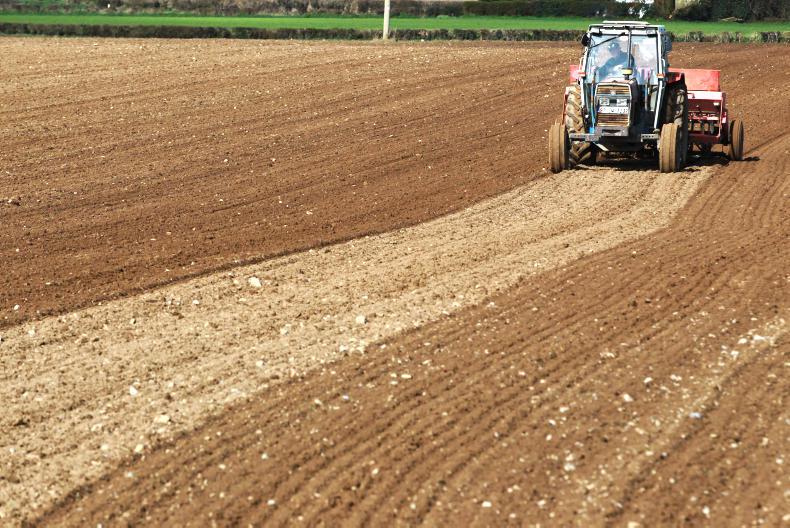
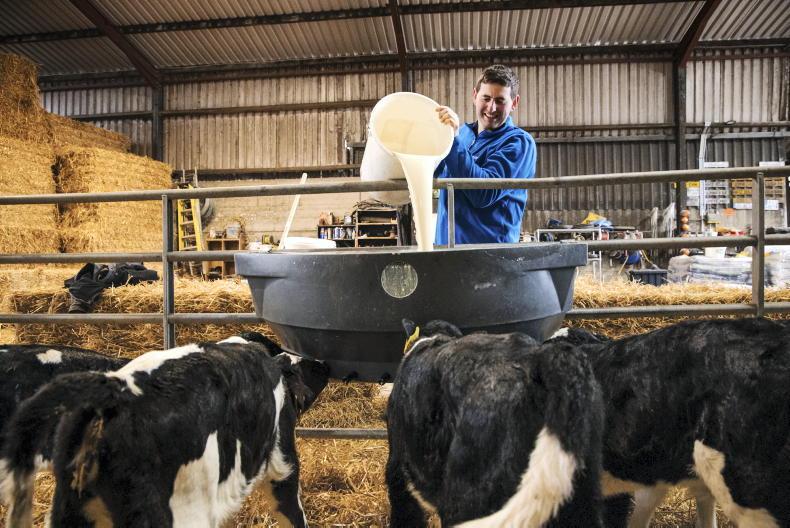

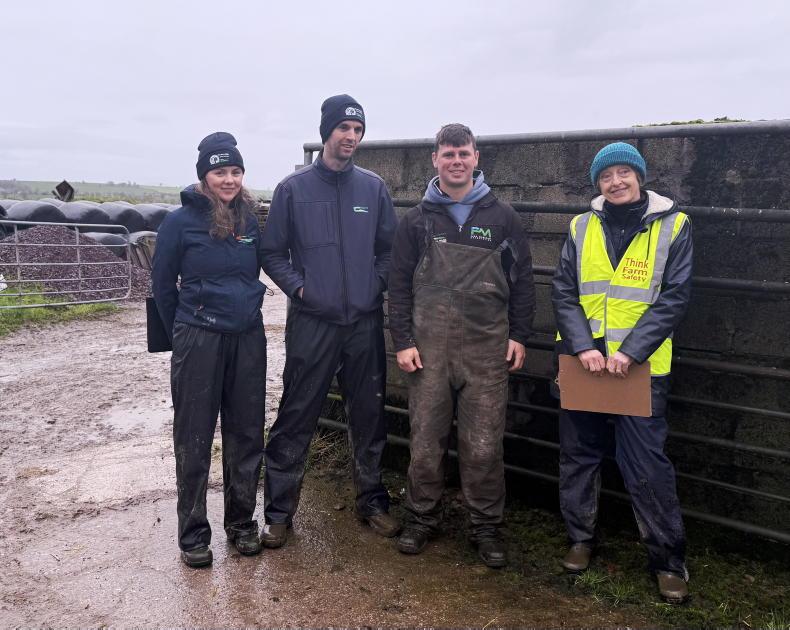
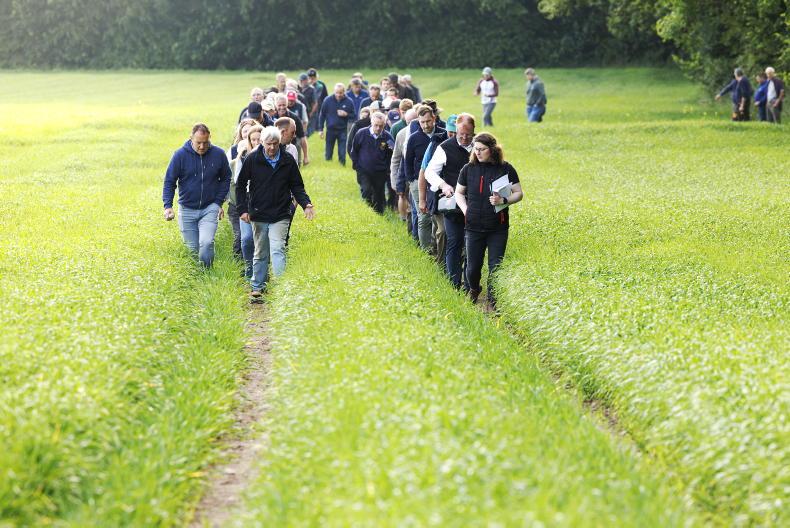

SHARING OPTIONS